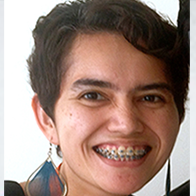“I started thinking about that, and I used to think that the Talib would come, and he would just kill me.
"But then I said, ‘If he comes, what would you do Malala?’ then I would reply to myself, ‘Malala, just take a shoe and hit him.’
"But then I said, ‘If you hit a Talib with your shoe, then there would be no difference between you and the Talib. You must not treat others with cruelty and that much harshly, you must fight others but through peace and through dialogue and through education.’ Then I said I will tell him how important education is and that ‘I even want education for your children as well.’ And I will tell him, ‘That’s what I want to tell you, now do what you want'." - Malala Yousafzai, in an interview with Jon Stewart, in a response to how she reacted when she first learnt that the Taliban was targeting her.
Personally, I am tired of feeling upset about the media-mongering that associates Islam with terrorism. More recently, the Charlie Hebdo massacre again brought to light this issue, and as if on cue, the whole social media space turned into a playground filled with angry kids demanding that their version of free speech is the correct one.
Even the movement of “Je Suis Charlie” (I am Charlie) was met with such strong opinions, journalists and civil society alike both either support this movement, support it with a disclaimer that they do not actually support the racism and brand of satire that Charlie Hebdo publishes, or go against it all together by skewing towards “I am Not Charlie”.
What’s interesting is the irony that most of the opinions out there seems to demand that people think their way, diverging from the meaning of free speech itself.
As a scientist and educator, I have long since learnt that there is no control over how people think. You can only present your data or opinion to the public, but how people react to it, is their responsibility.
Sure, as a person who publishes work in the public domain, most times peer-reviewed, I do need to be responsible with what I publish. Yet if I am too careful with my self-censorship or simply follow the argument by my reviewers, then I cannot actually put forth my own ideas.
Everyone has opinions. But how many of us do take a second and pause before pressing that send or publish button, on whether that particular opinion would contribute towards positivity and knowledge rather than negativity, aggression, and sadly in some cases, violence?
On the other hand, it is also out of any writer’s or cartoonist’s control as to how the public would receive their pieces. I recently gave this advice to a friend who is now a fellow columnist, Emmanuel Joseph, “the moment your article is published, let it go, it belongs to the readers now.” There is no point feeling offended or feeling forcibly silenced just because some people do not agree to your words. I think that I can only do better the next time around.
I admit I have not cared about Charlie Hebdo before this; I was only paying attention to it after being bombarded with news about the massacre. I saw the cartoons, I read the many articles that follow. But, I choose to not be offended.
Personally, if these people think that they can degrade my religion and offend me because of such depictions, then I will prove them wrong. I will react by choosing actions that are kind, by being a better Muslim and upholding the compassion that is tantamount to my religion.
But I will also not be bullied to apologise nor to be fully “I am Charlie”. Such acts of terrorism by the Talibans, Isis, these gunmen (and/or women) towards Charlie Hebdo, do not represent me nor my religion. They should NOT be equated to all Muslims.
The world should learn from 9/11 and the anti-terror war that ensued, that alluding Muslims to terrorism breeds more only terror, and at times among Muslims themselves, such as the case with Malala’s shooting, and many others. The harassment that Muslims face due to this as well as the loss of human lives, Muslim and non-Muslim alike, should be a lesson to us all that in the end, it is our reaction that matters.
The lovebombing of a Swedish mosque, the #illridewithyou campaign, the reaction by Malala to keep fighting for education for all girls regardless of whether they are daughters of Talibs and for her principle in not reacting in violence, should be lessons for us all to emulate.
It is time for us to react with kindness and non-violence. It is time for us to be more responsible about our reactions, and to not be too sensitive or offended to the point of instigating violence. It is time for us to keep putting more positive energy into our daily lives and the people around us.
Je suis Charlie ou Je ne suis pas Charlie, en fin de compte, nous sommes tous des êtres humains. Je n'approuve pas la violence. Réagissons avec bonté et amour. I am Charlie or I am not Charlie, at the end of the day we are all human beings. I don’t support violence. Let us react with kindness and love. – January 14, 2015.
* This is the personal opinion of the writer or publication and does not necessarily represent the views of The Malaysian Insider.


Comments
Please refrain from nicknames or comments of a racist, sexist, personal, vulgar or derogatory nature, or you may risk being blocked from commenting in our website. We encourage commenters to use their real names as their username. As comments are moderated, they may not appear immediately or even on the same day you posted them. We also reserve the right to delete off-topic comments